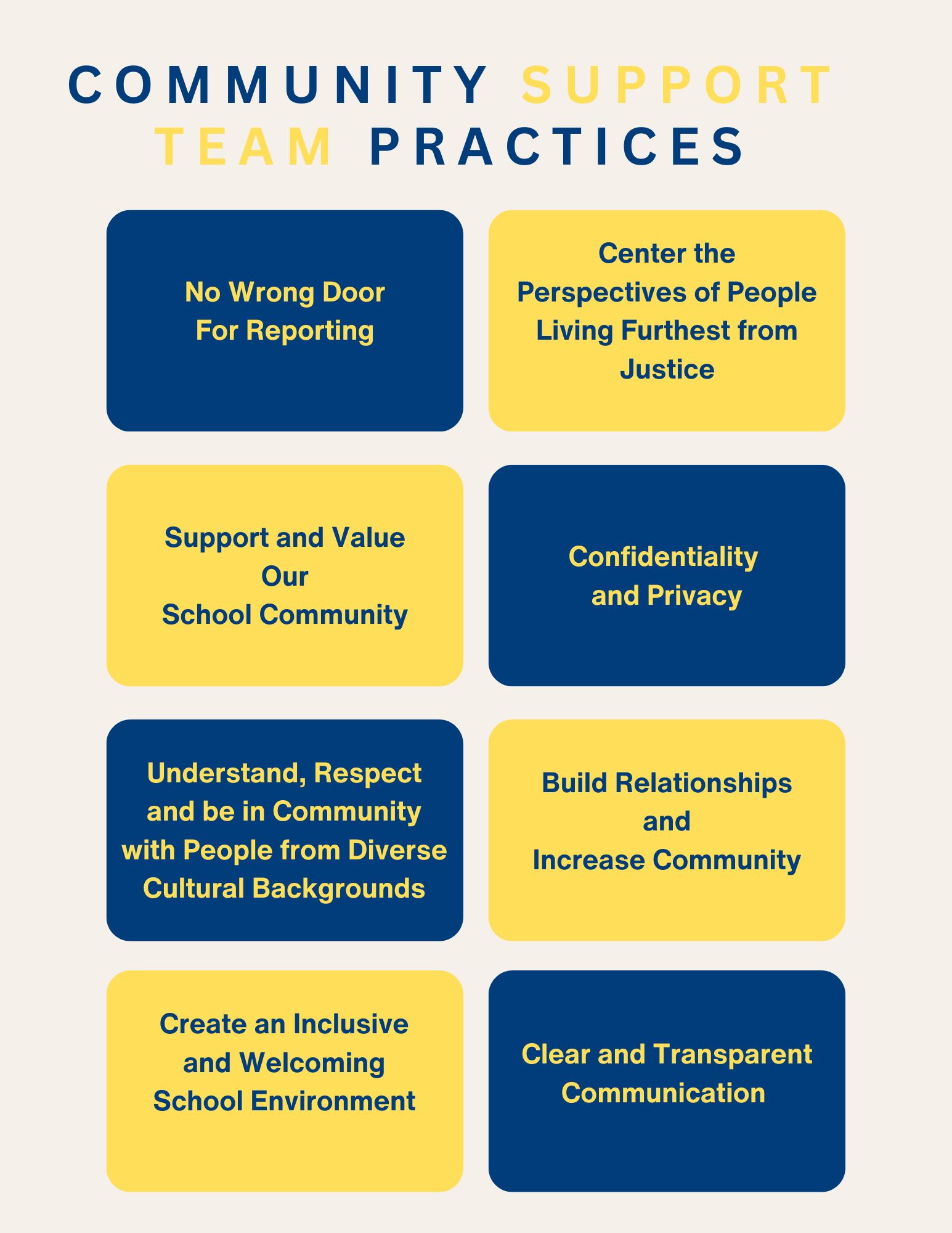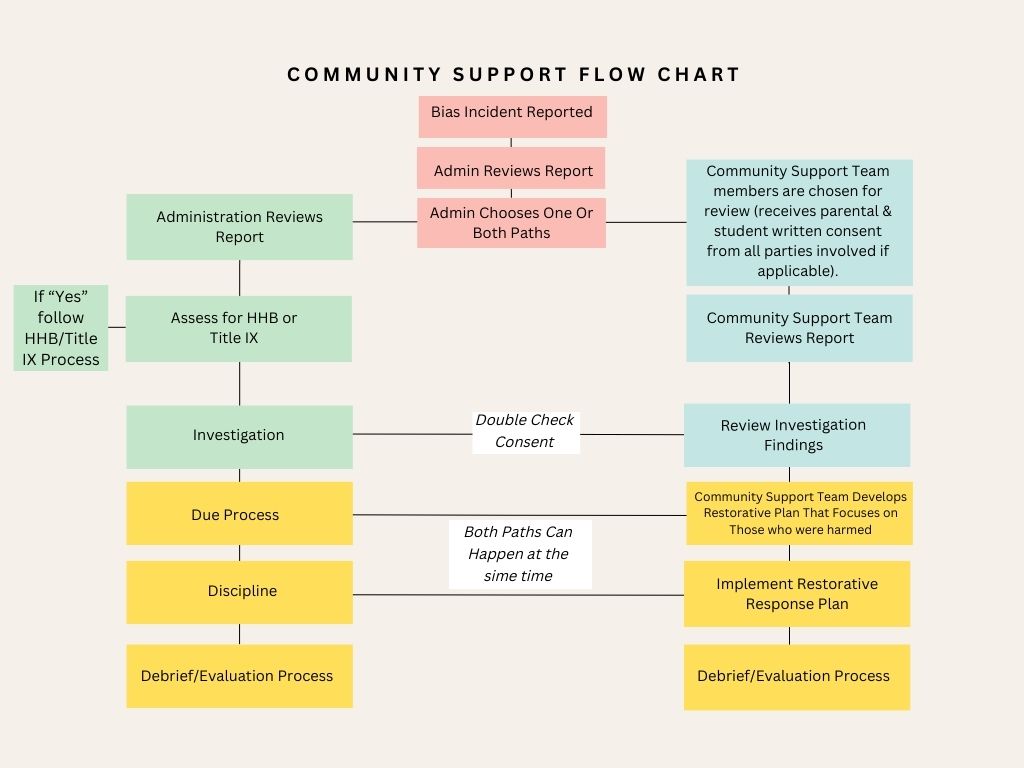EHS Community Support Team
Community Support Team Practices

Important Definitions
No Wrong Door: Complainants can enter a complaint to an administrator through anyone at the school.
Due Process: Due process is the requirement that requires the school to respect all the student rights owed to a person. Due process balances the power of the school and protects the individual person from the power of the policies.
HHB: Vermont schools are required by law to have policies in place to prevent the hazing, harassment, and/or bullying of students. School administrators must follow these policies when investigating a complaint.
Title IX: Students have the right to an education in an environment that is free from discrimination. Under federal law, discrimination on the basis of sex is prohibited. Title IX (Title nine) applies to all educational programs or activities that receive federal assistance, regardless of which part of the program or activity receives federal assistance. Title IX also prohibits stereotyped or sex-biased athletics, course assignments and student counseling. The United States Supreme Court has also held that students cannot be discriminated against on the basis of gender under the 14th Amendment to the Constitution.
Restorative Response: A restorative process (or restorative response) is one in which the victim and the offender and, where appropriate, any other individuals or community members affected by a harm or crime participate together actively in the resolution of matters arising from the harm or crime, with the help of a facilitator. The goal of this response is to repair harm in the community.
Debrief/Evaluation Process: A debrief process is a structured process related to people’s experiences, reviews actions taken and resolution of harm. Debrief processes are helpful in learning from how a situation was handled and making sure all parties are aware of the steps that were taken. Debrief processes should be documented and done as soon as possible after an incident or an action taken.
Consent: Consent in terms of the bias response system means that all parties have to agree (in writing) to participate in the bias response. If either of the parties do not agree, then the response will either follow the HHB pathway or there will be a bias response for the party that did agree. All parties also have to give consent for a restorative process to occur.
Discrimination: Adverse treatment based on an individual’s membership in a legally protected category that is sufficiently serious to unreasonably interfere with or limit an individual’s opportunity to participate in or benefit from an EHS program or activity, or that otherwise adversely affects a term or condition of the individual’s employment or education. Legally protected categories include: race, religion, national or ethnic origin, age, sex, sexual orientation, marital status, disability, or gender identity or expression.
Harassment: A form of discrimination (defined above) that encompasses an incident or incidents of verbal, written, visual, or physical communications and/or conduct based on or motivated by an individual’s membership in a legally protected category that is sufficiently severe, pervasive, persistent and/or patently offensive that it has the effect of unreasonably interfering with that individual’s work or academic performance, or that creates a hostile working, educational or living environment. Harassment may include the use of epithets, stereotypes, slurs, comments, insults, derogatory remarks, gestures, threats, graffiti, display or circulation of written or visual material, taunts, and negative references related to any of these protected categories.
Bullying: “Bullying means any overt act or combination of acts, including an act conducted by electronic means, directed against a student by another student or group of students and which:
Is repeated over time
Is intended to ridicule, humiliate, or intimidate the student; and
Occurs during the school day on school property, on a school bus, or at a school-sponsored activity, or before or after the school day on a school bus or at a school-sponsored activity; or does not occur during the school day on school property, on a school bus, or at a school-sponsored activity and can be shown to pose a clear and substantial interference with another student’s right to access educational programs.
Hate Crimes are Bias Incidents in which the conduct constitutes a criminal offense against persons or property. Hate crimes are defined by Vermont law at 13 V.S.A. § 1455, and must be reported to Police Services.
Microaggressions are Bias Incidents that do not rise to the level of a EHS policy violation (e.g. Discrimination, Harassment, etc.) or Hate Crime, in which everyday verbal, nonverbal, and environmental slights, snubs, or insults, communicate hostile, derogatory, or negative messages to target persons based solely upon their group membership. Microaggressions may be intentional or unintentional, and are generally protected by the First Amendment.
Flow Chart

